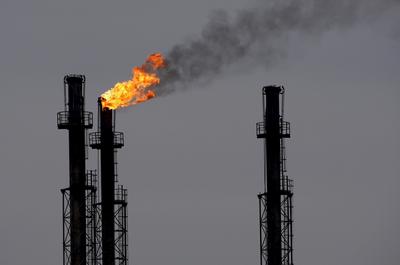For strategists, the deal ushers in an apparent shift in global power and the end of China as a viable destination for Western energy exports. The deal has certainly placed energy security back on the international political agenda. The reality that global competition for energy is heating up fuels this doomsayer sentiment. International demand is rising for the known traditional energy reserves, which are depleting.
So does the ‘mega deal’ reflect Putin’s sudden pivot to the East? Not necessarily. Firstly, the deal had been on the table for a decade, and in 2009 the Kremlin officially stated its planned push to the Asian market in the ‘Energy Strategy of Russia to 2030’. Russia has the world’s largest natural gas reserves and China is the world’s biggest gas consumer. Sheer geography pits the two powerhouses as neighbours — the deal is simple economics. Despite the deal pointing to better working Sino–Russian relations, tensions are very much still a hallmark and the bilateral relationship is set to remain coloured by mutual suspicion.
Rather, the deal is a pragmatic application of Russian foreign energy strategy — a strategy that has remained unchanged and entirely predictable since Putin came to power in 2000. The primary goal of this strategy is to establish Russia as an energy superpower. So energy is wielded as a foreign policy tool. Nowhere is this more devastatingly effective than in the states of the former Soviet Union (FSU). The strategic manipulation of the FSU’s overreliance upon Russian gas is a well-known occurrence. The intricate web of pipelines across the FSU states wed them to Russian supplies — those who actively seek an exit from Russia’s orbit are punished by sudden supply cuts or price hikes.
Putin can use this strategy because Europe is set to remain Russia’s most important customer. China’s 38bcm pales in comparison to the 160bcm delivered to Europe annually. More so, the bulk of Russia’s Western European customers are locked in with long-term supply contracts. In some cases, their domestic gas infrastructure is owned and operated by Russian state-owned behemoth Gazprom. There are no short-term alternatives to Russian gas for Europe.
So, ultimately, this deal was all about diversification — the diversification of Russia’s customer base and the diversification of sources for China’s insatiable energy thirst. Russia effectively has the FSU under its thumb with the sustained selective application of its energy ‘weapon’. It has Western Europe locked into long-term contracts and starved of any viable short-term alternatives. Naturally, it was only a matter of time before Russia cast its eye to the East.
Sure, China may have secured a reduced price given the Kremlin’s current isolation stemming from the events on the Crimean Peninsula. But who was the real winner here? Simple: the rest of us.
Indeed, ‘end of oil’ pundits — and consumers — should rejoice in the deal. Russia has the largest gas deposits on earth – most located in the Far East — which have remained unexplored and undeveloped as a direct result of the lack of cash to access, develop and export the reserves. This deal paves the way for this entire region to be explored and turned to production. Not only are new fields set to come online providing more gas to the international market, the deal provides the precedent of international partnerships when it comes to exploration. It also imparts a healthy injection of competition into the international energy market that will ultimately serve to push prices down in the long term.
Perhaps more significantly, this recent deal allows for the delay in Sino–Russian exploration of offshore Arctic energy reserves — a challenging and environmentally hazardous endeavour, which will require more time to develop the necessary technology.
The China–Russia gas deal is nothing unexpected. It is merely smart business and another step for the two powerhouses towards conquering the challenges of energy security. Those with insecurities must simply grin and bear it.
Elizabeth Buchanan is a PhD candidate at the ANU Centre for European Studies. She has experience working in the resources sector and on the US-Russian Arctic Dialogue. She is currently the manager of the Rio Tinto China Economy Program at the Crawford School of Public Policy, ANU.

